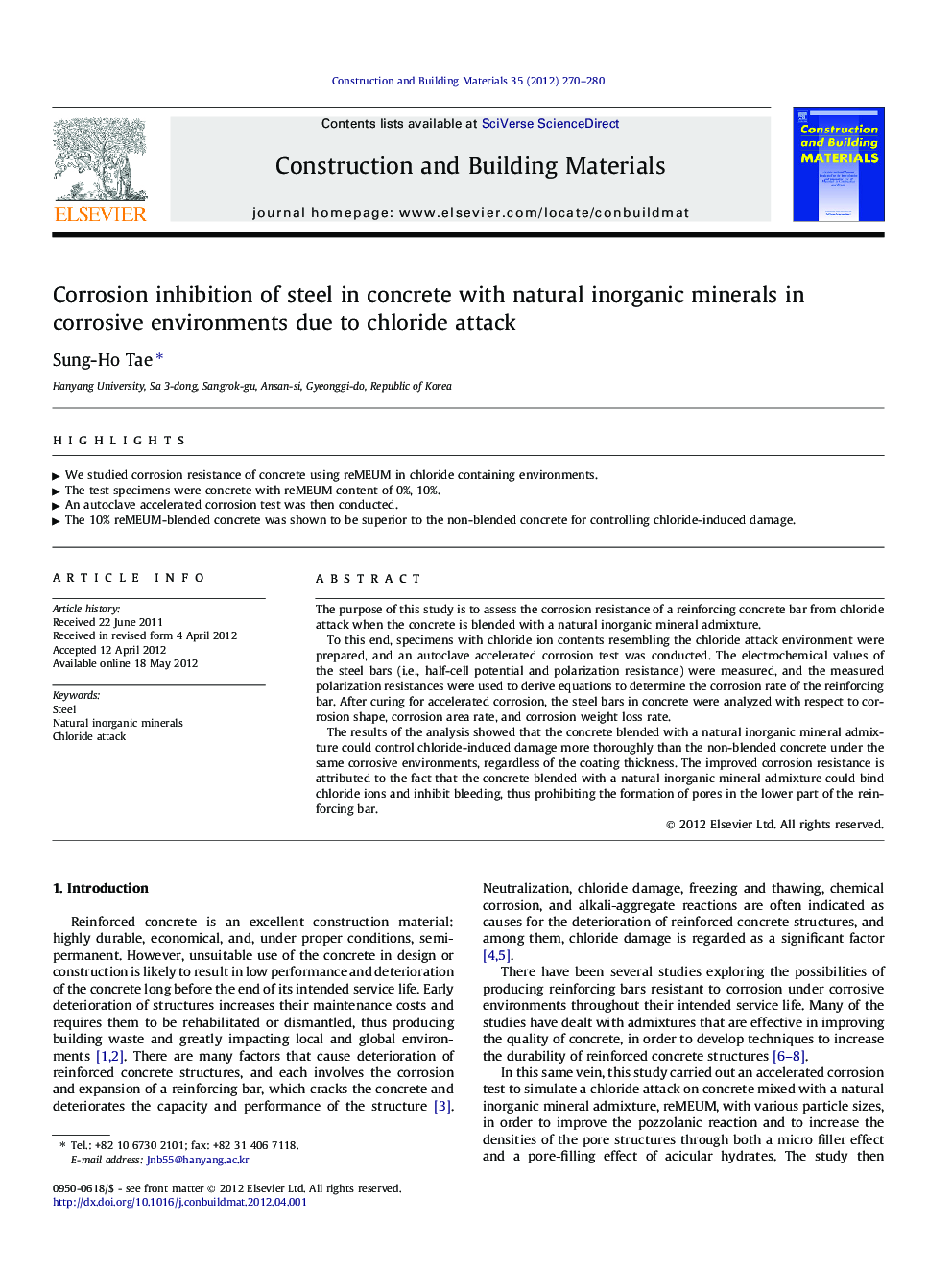| Article ID | Journal | Published Year | Pages | File Type |
|---|---|---|---|---|
| 258848 | Construction and Building Materials | 2012 | 11 Pages |
The purpose of this study is to assess the corrosion resistance of a reinforcing concrete bar from chloride attack when the concrete is blended with a natural inorganic mineral admixture.To this end, specimens with chloride ion contents resembling the chloride attack environment were prepared, and an autoclave accelerated corrosion test was conducted. The electrochemical values of the steel bars (i.e., half-cell potential and polarization resistance) were measured, and the measured polarization resistances were used to derive equations to determine the corrosion rate of the reinforcing bar. After curing for accelerated corrosion, the steel bars in concrete were analyzed with respect to corrosion shape, corrosion area rate, and corrosion weight loss rate.The results of the analysis showed that the concrete blended with a natural inorganic mineral admixture could control chloride-induced damage more thoroughly than the non-blended concrete under the same corrosive environments, regardless of the coating thickness. The improved corrosion resistance is attributed to the fact that the concrete blended with a natural inorganic mineral admixture could bind chloride ions and inhibit bleeding, thus prohibiting the formation of pores in the lower part of the reinforcing bar.
► We studied corrosion resistance of concrete using reMEUM in chloride containing environments. ► The test specimens were concrete with reMEUM content of 0%, 10%. ► An autoclave accelerated corrosion test was then conducted. ► The 10% reMEUM-blended concrete was shown to be superior to the non-blended concrete for controlling chloride-induced damage.
